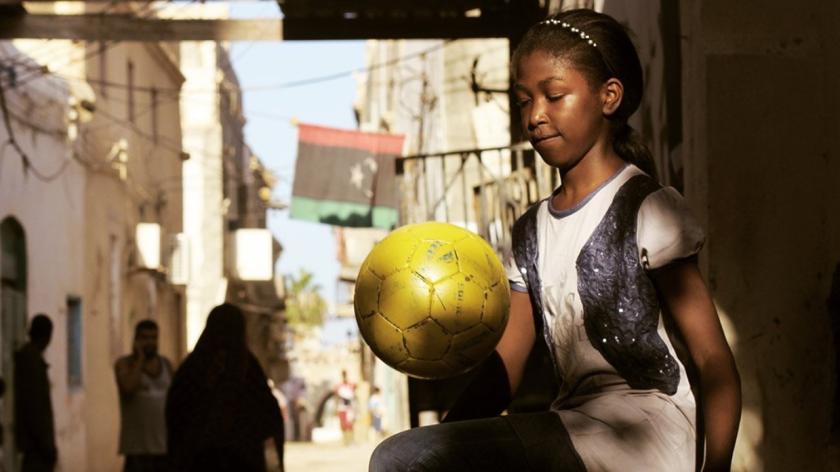Set in the months and years after the Libyan revolution, Freedom Fields follows several women aiming to compete in international football. The documentary finds the players excitedly preparing for their first overseas tournament. However, it soon becomes clear that liberation doesn’t equate to freedom, as threats of violence from religious extremists cause the Libyan Football Federation to cancel the trip.
It’s clear that British-Libyan filmmaker Naziha Arebi originally planned to follow the women to the tournament, an uplifting tale of competition and sisterhood. Instead, we catch up a year later to find a much more complicated situation. With the group all but disbanded, the players have given up their dreams: some have accepted marriage, others bury their head in studies. It’s not until one last opportunity arises that those old fires are relit.
Freedom Fields is often a fascinating watch. With a constant threat of retribution, the women must practice at night while bombs and gunfire ring out across the city. Even when a blackout cuts the floodlights, cars are lined up to light the pitch. Their determination is unbreakable, even paying for their own travel to compete as a private team.
The film’s most affecting moments come when the women confront their situation
However, it can be difficult to follow what’s happening at times. The fly-on-the-wall style means that many situations lack context, with the viewer left to keep up with conversations and guess their lead up. It also feels like half of the story is left off camera. The middle section gives a rare look into life in Libya, but occasionally treads water, while the five year catch up at the end shows how much we missed. This is no doubt due to when the crew could be present, and does not detract from the overall story.
The film’s most affecting moments come when the women confront their situation. In one outburst, one player explains how the revolution promised freedom, but life for women has not improved – if anything, religion has made it stricter. It’s a subtle film, but it offers an unparalleled insight into life after the Arab Spring, featuring some truly powerful women.













Add comment